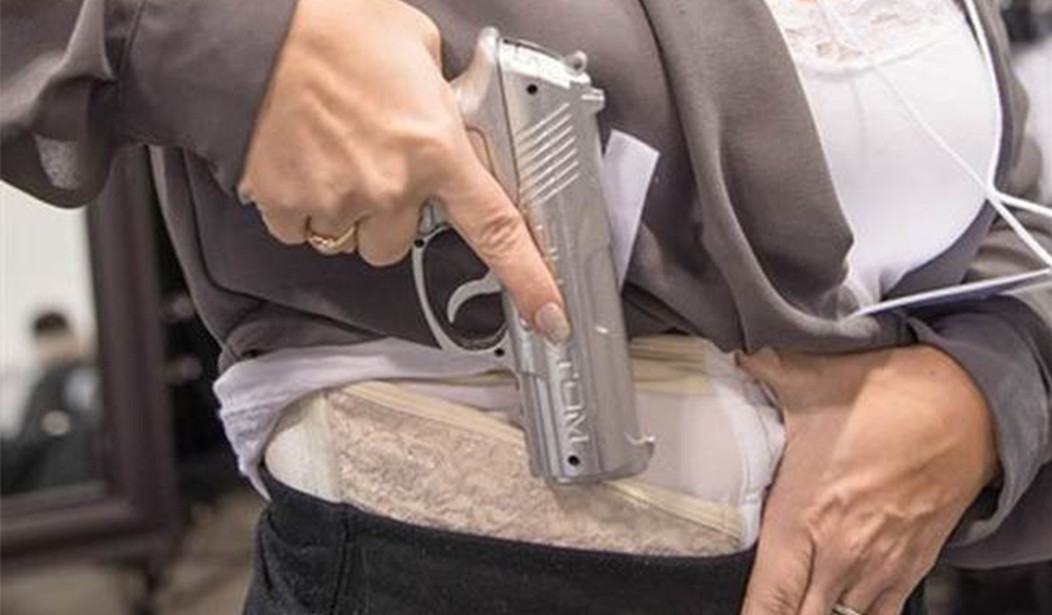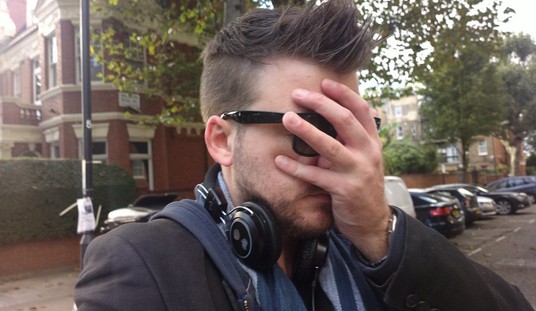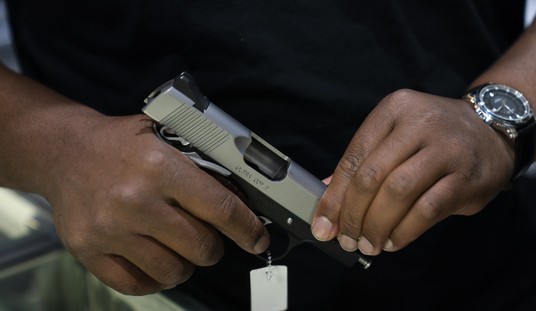The Fraternal Order of Police and the International Association of Police Chiefs have officially come out in opposition to H.R. 38, the Constitutional Concealed Carry Reciprocity Act of 2025, urging Congress in a letter to reject the bill if it comes up for a vote on the House floor.
I'm not really surprised to see the Fraternal Order of Police come out against H.R. 38, and given the connections to Bloomberg and the Joyce Foundation I fully expected the IACP to oppose this bill.
The police groups lay out several reasons for their opposition to the legislation, starting with a claim that it would have an impact on officer safety.
Law enforcement officers are most likely to encounter armed citizens when responding to a disturbance call or making a traffic stop. In 2024, 92 officers were shot when answering a disturbance call, 8 of whom were killed. In that same year, 49 law enforcement officers were shot during traffic stops, 12 of whom were killed. These two types of calls represent 44% of all officers shot in the line of duty in 2024. Officers handle these encounters differently if their suspect is armed or discovered to be armed. This is for their safety, the suspects’ safety, and the public’s safety.
I've always been told that officers treat every situation as if they person they're encountering is armed, because they don't know if that's the case and it's better to be cautious. This is actually the first time I've ever seen a police group claim otherwise.
If a driver from Vermont, a state that allows its residents to carry firearms without a license or permit, is stopped by a Virginia State Trooper, as soon as the driver provides a valid photographic identification and asserts he or she is lawfully carrying under the laws of Vermont, he or she has met the requirements of H.R. 38. The driver is not subject to any of Virginia’s firearms laws, and because the bill includes provisions that allow individuals to sue law enforcement officers and agencies for detentions or arrests related to concealed carry, the Trooper would be placing himself in legal jeopardy in taking any action that could be later construed as depriving the driver of any rights or privileges. This would include securing the firearm to determine if the driver is impaired or engaged in other criminal activity unrelated to the firearm.
It's absolutely not the case that a Vermont gun owner traveling through Virginia would not be subject to any of the state's gun laws, or that an officer could not secucre a firearm while, say, conducting a field sobriety test. H.R. 38 specifically states that when there is "probable cause to believe" that someone is not carrying in accordance with H.R. 38 they may be arrested or otherwise detained for a "violation of any law or any rule or regulation of a State or any political subdivision thereof related to the possession, transportation, or carrying of firearms." A field sobriety test or an investigation into criminal activity unrelated to the firearm in question would also not be subject to a lawsuit, because (as the letter itself notes) " the bill includes provisions that allow individuals to sue law enforcement officers and agencies for detentions or arrests related to concealed carry."
Next, the FOP and IACP argue that the bill "seems to cancel any qualified immunity for the officer as the right of Americansto bear arms is guaranteed by the Second Amendment.
Qualified immunity protects officers from civil liability unless they violate clearly established statutory or constitutional rights. Any action the officer may take in reaction to the knowledge that the person they have encountered is armed could place that officer in very real legal peril.
Again, if there is a "reasonable and articulable suspicion" (quoting the Supreme Court) that the armed individual poses a threat to safety, officers can conduct limited and temporary searches and seizures of firearms. If there is no reasonable belief present, then why should officers be exempt from being sued for depriving someone of a fundamental civil right?
Finally, the groups argue that HR 38 "undermines state sovereignty and authority to investigate."
Many states already recognize concealed carry permits from jurisdictions with comparable requirements, such as live training and enhanced background checks. These agreements respect state sovereignty and public safety without Federal overreach. This legislation would override these tailored arrangements and strip states of their ability to set and enforce their own standards for concealed carry. Instead of officers being thoroughly trained on their state and local gun safety laws, officers would be expected to interpret and apply laws from all 50 states in real time, without reliable means to verify an individual's eligibility to carry concealed weapons, especially those from permitless carry states where no physical permit exists.
"Many" is not "all." There are some jurisdictions, including California, New York, and Washington, D.C., that don't recognize any out-of-state carry licenses, no matter what a particular state's training standards look like. Drivers' licenses, meanwhile, are universally recognized even though the rules of the road and training stands vary from state-to-state.
And as FPC's Rob Romano points out, police already have to deal with this issue thanks to the Law Enforcement Officers Safety Act, which essentially provides universal reciprocity for cops, but not their civilian counterparts.
This is a hilarious argument for police to make, considering that LEOSA violates "state sovereignty" in the exact same way, but just for them https://t.co/zQOS3ZBFoW pic.twitter.com/FUdkQQWhvj
— Rob Romano (@2Aupdates) November 18, 2025
I know that police are used to being exempt from all kinds of gun control legislation, but if national right-to-carry reciprocity is good enough for police, it should be good enough for the rest of us too.
Now, it's probably true that this would be easier from a law enforcement standpoint if H.R. 38 required individuals in permitless carry states to obtain a valid license to carry that would have universal reciprocity, but that would also be a burden on the residents of those 29 states.
H.R. 38 would be a big change, but it would also be a change for the better. At the moment there's been no official word on when the bill could be brought to the House floor for a vote, but gun owners and Second Amendment supporters should be in contact with their congresscritters now to urge them to reject the FOP and IACP's arguments and take a stand in support of our fundamental right to keep and bear arms.









